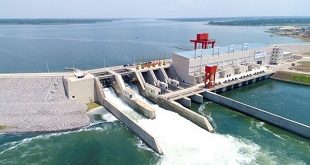
The Africa Centre for Energy and Mineral Policy (ACEMP) organised the first ever Uganda national conference and exhibition on artisanal and small-scale mining and quarrying in Kampala on July 25-26. The Independent’s Julius Businge spoke to Don Binyina Bwesigye, the ACEMP’s executive director on the significance of the event to the economy.
How significant was the conference at this point in time?
We brought together around 200 small scale miners, civil society actors, and government officials, politicians. Over 90% of mining in Uganda is done by artisanal and small-scale miners estimated to be more than 390,000 country-wide. It is also estimated that the sub-sector sustains close to two million Ugandans across its various value chains. However, the sub-sector remains largely informal. The conference was held with the thinking that it would come up with possible solutions to the challenges facing the sector.
So what challenges have you identified in the sub-sector and what are the probable solutions?
For years, the government has been seeking for foreign investors without looking into the issues of artisanal and small scale miners as well. The government’s focus has been on oil and gas due to its huge sums of revenue inflow. Despite the fact that the mining sub-sector also contributes to revenue inflow into the economy, foreigners have taken over most of the minerals and are locking out locals. Yet, most of the revenue generated by these foreign investors is repatriated. We are trying to have discussions on how these miners can have their areas gazetted as one step to ensure that the sub- sector benefits locals. The nature of work of artisanal miners remains largely informal; characterised by mineral smuggling, high health and safety risks, conflict among mineral operators, loss of revenue to both central and local governments, among others. This informality therefore, makes it difficult for those who ventured in it to access sustainable markets and affordable finance to grow their operations. As such, we have planned to have this conference annually to enable miners interact with the policy makers, markets, downstream product consumers and capital financiers.
What strategic minerals should the government focus on in your view?
Tin is an important mineral given its importance in the technology sector development. Cooper and cobalt, too, are being sought globally because of the shift from fossil fuels to electricity. Aggregates like sand and stones are at the heart of our development – power dams, roads, construction. The minerals that the government needs to focus on are gold, nickel, iron ore, zinc, phosphates, uranium, limestone, marble graphite and salt.
What opportunities does the looming Mining and Minerals Bill bring to the sub-sector?
I am very positive that the new bill introduces some exciting developments that would drive the sub-sector forward, if well followed. The third National Development Plan (NDPIII) has separated oil and gas from mining and that means mining will be given special attention by the government, and its contribution to the GDP will go beyond the 10%. The policy in place currently recognises artisanal miners and we are happy that the government has come up to recognise these artisanal miners. With proper regulation we believe that threats of eviction of artisanal miners will be avoided.
The bill proposes the formation of an independent company to aid government to monitor the sub-sector closely…does this make sense to you?
Personally, I have objected the formation of the company. I think there is excitement at policy level following the formation of the National Oil Company for the oil and gas sub-sector. The government thinks that the dynamics playing out in the oil and gas sub-sector and the mineral sub-sector are the same yet that is not true. Chile, for instance, is the only country that I know of that has successfully run a company because of its enormous reserves and the discipline it has when it comes to managing their resources. Our economy here has a lot of fiscal indiscipline that makes it difficult to sustain this company.
Has politics infiltrated the mineral sub-sector as some observers say?
The biggest challenge that we have is that a section of our legislators and the highly connected individuals have actually taken up the mining sub-sector and the regulators seem to fear to do their job. We appeal to the government to regulate the sub-sector to benefit all the players.
How about the issues of artisans degrading the environment?
That is true. The big contributor to the environmental degradation is this group because it is not properly regulated and monitored. We hope the situation will change once they are brought within the regulatory framework.
Your last word for this interview…
This conference will be an annual event. We believe that together with other interventions, it will sort out some of the problems the sector is currently facing.
****
 The Independent Uganda: You get the Truth we Pay the Price
The Independent Uganda: You get the Truth we Pay the Price



I have a registered artisinal organization here in south western Uganda.
Kabale.
But don’t know any of the western coordinators.
I would love our organization to be recognized by the artisinal association of Uganda.